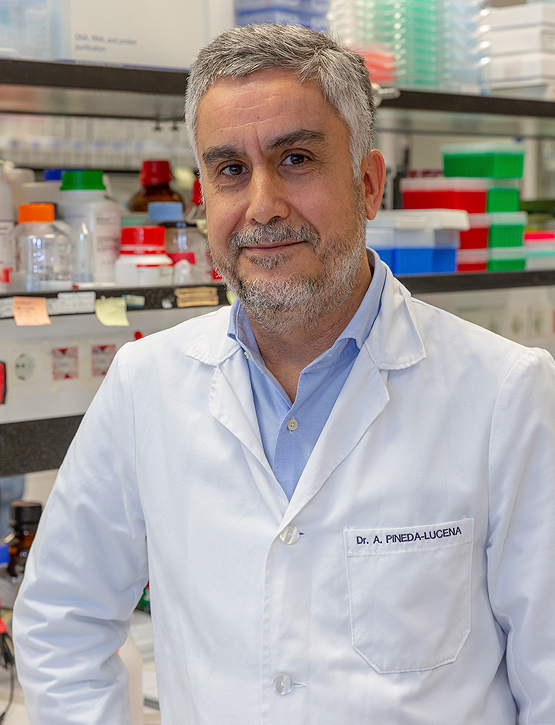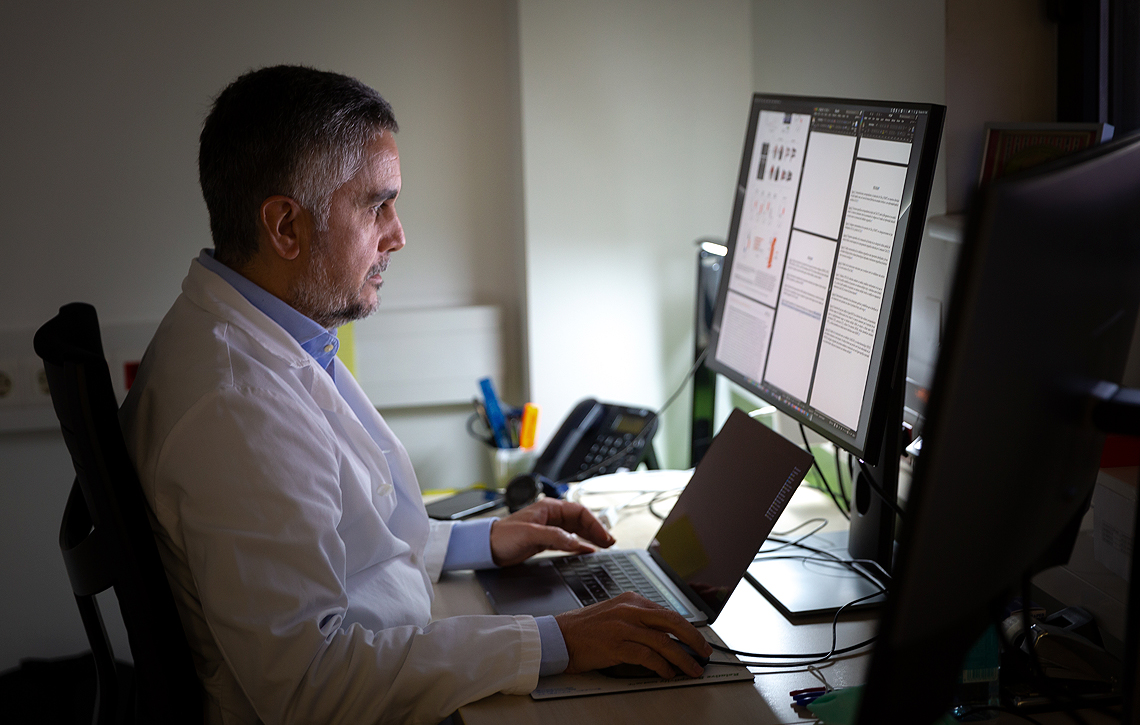In the picture
Antonio Pineda-Lucena coordinates the Personalised Medicine research area of Strategy 2025.
The University launched its Strategy 2025 at the beginning of 2021. The plan, oriented towards a sustainable developmentand care for people and the environment, has as one of its three axes the developmentof an impactful and focused research. This is where areaPersonalised Medicine, coordinated by Antonio, fits in.
With a PhD in Chemical Sciences from the Autonomous University of Madrid and the Centre for Biological Research (CSIC) in 1995, Antonio Pineda has worked in the Netherlands, Canada and the United Kingdom. In 2015 he joined the Hospital Universitario La Fe in Valencia, and in 2019 he arrived at the Hospital Universitario La Fe in Valencia. Cimawhere he currently combines his responsibilities as director of the Molecular Therapies and Translational researchProgramme with the Deputy Director of this institution.
"In Personalised Medicine we work to improve the diagnosis and treatment of different pathologies, but not only those with a high prevalence, such as oncological diseases. We are also committed to Rare Diseases, although they affect a much smaller issueof patients, because what matters to us is the person, and there is a person who suffers, a family that suffers," he says. The fact that the focus is on the person is also the reason why Palliative Medicine is another of the lines of researchcore topic . "We want to diagnose and treat these pathologies more effectively, whether they are oncological or rare, but also to accompany people when the disease is advanced".




